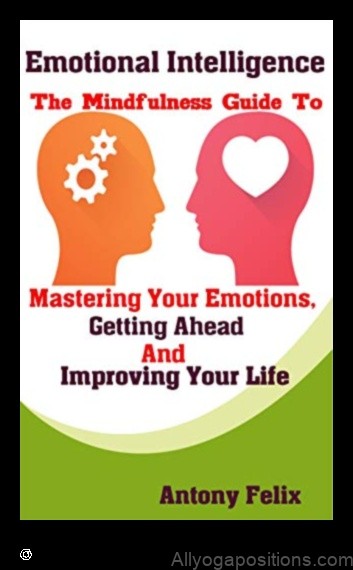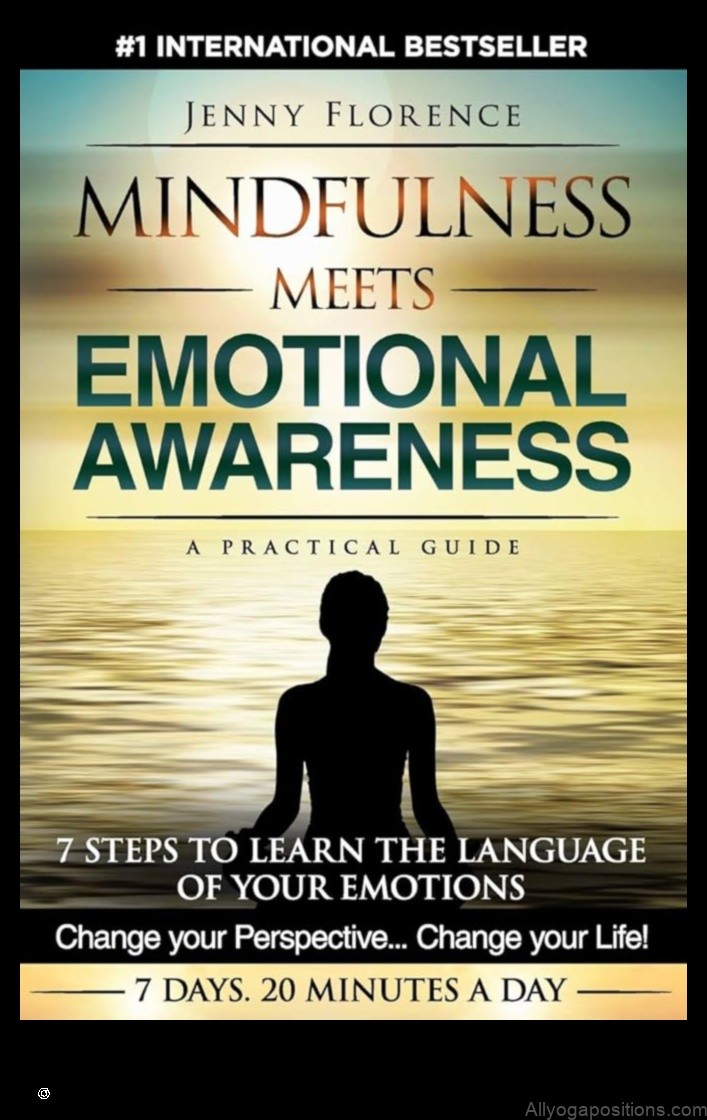
Meditation and Emotional Intelligence: Navigating Feelings Mindfully
Emotional intelligence is the ability to understand and manage your own emotions, as well as the emotions of others. It is a key component of emotional well-being and can help you to navigate difficult emotions in a healthy way.
Meditation is a practice that can help you to develop emotional intelligence. It can help you to become more aware of your emotions, to regulate your emotions, and to connect with your inner wisdom.
In this article, we will explore the relationship between meditation and emotional intelligence. We will discuss how meditation can help you to navigate difficult emotions in a mindful way, and we will provide tips for practicing meditation for emotional intelligence.
## What are feelings?
Feelings are our subjective experience of the world. They are our way of interpreting and responding to our experiences. Feelings can be positive, negative, or neutral.
## Why is it important to navigate feelings?
It is important to navigate our feelings because they can have a significant impact on our lives. Our feelings can affect our thoughts, our behaviors, and our relationships.
If we do not understand or manage our feelings, they can lead to problems such as anxiety, depression, and relationship conflict.
## How to identify your feelings
The first step to navigating your feelings is to identify them. This can be difficult, especially if you are not used to paying attention to your emotions.
There are a few things you can do to identify your feelings. One is to pay attention to your body. When you are feeling a certain way, what does your body feel like? Do you feel tense, relaxed, or somewhere in between?
Another way to identify your feelings is to pay attention to your thoughts. What are you thinking about when you are feeling a certain way?
Finally, you can pay attention to your behavior. How are you acting when you are feeling a certain way?
## How to cope with difficult feelings
Everyone experiences difficult feelings at some point in their lives. The key is to learn how to cope with these feelings in a healthy way.
There are a number of things you can do to cope with difficult feelings. Here are a few tips:
- Talk to someone you trust.
- Express your feelings through art, music, or writing.
- Exercise.
- Spend time in nature.
- Do something you enjoy.
## How to express your feelings
It is important to express your feelings in a healthy way. This can help you to release the tension that is associated with your emotions and to connect with others.
There are a number of ways to express your feelings. Here are a few tips:
- Talk to someone you trust.
- Write in a journal.
- Create art or music.
- Dance.
- Sing.
## How to manage your feelings
It is important to learn how to manage your feelings so that they do not interfere with your life.
There are a number of things you can do to manage your feelings. Here are a few tips:
- Set boundaries.
- Learn to say no.
Feature Definition Emotional intelligence The ability to understand and manage your own emotions, and the emotions of others. Meditation A practice that involves focusing on the present moment, and letting go of thoughts and emotions that are not helpful. Mindfulness The practice of paying attention to the present moment, without judgment. Navigating feelings The ability to understand, express, and manage your feelings in a healthy way. Self-awareness The ability to understand your own thoughts, feelings, and motivations. 
II. What are feelings?
Feelings are our internal responses to events and experiences. They are a way for us to process information and make sense of the world around us. Feelings can be positive, negative, or neutral. They can be fleeting or they can linger for days or even weeks.
Feelings are an important part of being human. They help us to connect with others, to make decisions, and to learn and grow. When we are able to understand and manage our feelings, we are able to live more fulfilling and productive lives.
III. Why is it important to navigate feelings?
Feelings are an important part of being human. They provide us with information about our needs, wants, and desires. They also help us to connect with others and to understand the world around us.
When we are able to navigate our feelings in a healthy way, we are able to live more fulfilling and productive lives. We are able to make better decisions, to build stronger relationships, and to cope with challenges more effectively.
On the other hand, when we are unable to navigate our feelings, we can experience a range of problems, including:
Emotional distress. When we are unable to express or process our feelings, they can build up and cause us to feel overwhelmed, anxious, or depressed.
Relationship problems. When we are unable to communicate our feelings to others, it can lead to conflict and misunderstandings.
Health problems. When we are unable to manage our stress, it can lead to physical problems, such as headaches, stomach problems, and sleep problems.Navigating our feelings is not always easy, but it is an important skill that can help us to live happier and healthier lives.

IV. How to identify your feelings
Identifying your feelings is the first step to navigating them effectively. There are a few different ways to do this:
- Pay attention to your body. When you are feeling a certain way, your body may give you clues. For example, if you are feeling stressed, you might notice that your muscles are tense or your heart is racing.
- Pay attention to your thoughts. The thoughts that you are having can also give you clues about what you are feeling. For example, if you are feeling sad, you might find yourself thinking about things that make you грустно.
- Pay attention to your behavior. The way that you are behaving can also be a clue to what you are feeling. For example, if you are feeling angry, you might find yourself lashing out at others or withdrawing from social situations.
Once you have identified your feelings, you can begin to take steps to navigate them in a healthy way.
How to cope with difficult feelings
Difficult feelings are a normal part of life. Everyone experiences them at some point. However, it can be challenging to know how to cope with difficult feelings in a healthy way.
Here are some tips for coping with difficult feelings:
- Acknowledge your feelings. The first step to coping with difficult feelings is to acknowledge them. It’s okay to feel what you’re feeling. Don’t try to suppress or ignore your feelings.
- Let yourself grieve. If you’re experiencing a loss, it’s important to allow yourself to grieve. This may involve crying, talking about your feelings, or spending time alone.
- Express your feelings in a healthy way. There are many healthy ways to express your feelings, such as writing in a journal, talking to a therapist, or exercising.
- Take care of yourself. When you’re feeling stressed or overwhelmed, it’s important to take care of yourself. This means eating healthy foods, getting enough sleep, and exercising regularly.
- Seek support from others. If you’re struggling to cope with your feelings, it’s important to seek support from others. This could include talking to a therapist, joining a support group, or talking to a trusted friend or family member.
- Anger
- Joy
- Sadness
- Fear
- Love
- Be aware of your feelings. The first step to managing your feelings is to be aware of them. Pay attention to how you are feeling, both physically and emotionally.
- Name your feelings. Once you are aware of your feelings, it is important to name them. This can help you to understand them better and to find ways to cope with them.
- Express your feelings in a healthy way. There are many healthy ways to express your feelings, such as talking to a friend or therapist, writing in a journal, or exercising.
- Set boundaries. It is important to set boundaries for yourself when it comes to how you express your feelings. For example, you may not want to share your feelings with everyone, and you may need to take some time to cool down before you talk about something that is upsetting you.
- Take care of yourself. When you are feeling stressed or overwhelmed, it is important to take care of yourself. This means eating healthy, getting enough sleep, and exercising regularly.
- Counseling or therapy
- Support groups
- Online resources
- Books and articles
- Psychology Today: Emotional Intelligence
- Mindful.org: Managing Your Emotions
- HelpGuide.org: Coping with Depression
- NAMI Helpline: 1-800-950-NAMI (6264)
- Identifying your feelings
- Coping with difficult feelings
- Expressing your feelings
- Managing your feelings
- Finding support for your feelings
- Yoga for Emotional Resilience Mindful ParentingA Gentle Practice for Cultivating Calm and Connection
- Net-Bearer Bond Yoga Pose A Guide to This Deep Stretch
- Mindful Presence Yoga for AwarenessA Guide to Living in the Moment
- Yoga and the Art of Breathing 5 Techniques for Improved Respiration
- Meditation and Laughter A Path to Joy in the Present Moment
II. What are feelings?
Feelings are our subjective experience of the world around us. They are how we make sense of our experiences and how we interact with others. Feelings can be positive or negative, and they can be both physical and emotional.
There are many different types of feelings, and each one has its own unique function. Some of the most common feelings include:
Feelings are an important part of being human, and they can help us to connect with ourselves and with others. However, it can be difficult to manage our feelings when they become overwhelming. Meditation and mindfulness can be helpful tools for navigating difficult feelings in a mindful way.
VII. How to manage your feelings
Managing your feelings is an important part of emotional intelligence. It involves being able to identify your feelings, understand their causes, and express them in a healthy way. When you are able to manage your feelings, you are better able to cope with stress, make good decisions, and build healthy relationships.
Here are some tips for managing your feelings:
By following these tips, you can learn to manage your feelings in a healthy way. This will help you to live a happier and more fulfilling life.
VIII. How to find support for your feelingsIf you are struggling to navigate your feelings on your own, there are a number of resources available to help you find support.
Some of the options available include:
It is important to find a support option that feels right for you and that you can trust. If you are not sure where to start, you can ask your doctor or a mental health professional for recommendations.
Remember, you are not alone in your struggles. There are people who can help you to navigate your feelings and to find ways to cope with them in a healthy way.
IX. Resources for navigating feelings
Here are some resources that you may find helpful for navigating your feelings:
FAQ
Q: What are feelings?
A: Feelings are our subjective experience of the world around us. They are our way of making sense of our experiences and our way of interacting with the world.Q: Why is it important to navigate feelings?
A: Feelings are an important part of being human. They help us to connect with others, to make decisions, and to learn and grow. When we are able to navigate our feelings in a healthy way, we are able to live more fulfilling and meaningful lives.Q: How can I navigate my feelings in a healthy way?
A: There are many ways to navigate your feelings in a healthy way. Some helpful strategies include:Table of Contents
Maybe You Like Them Too
